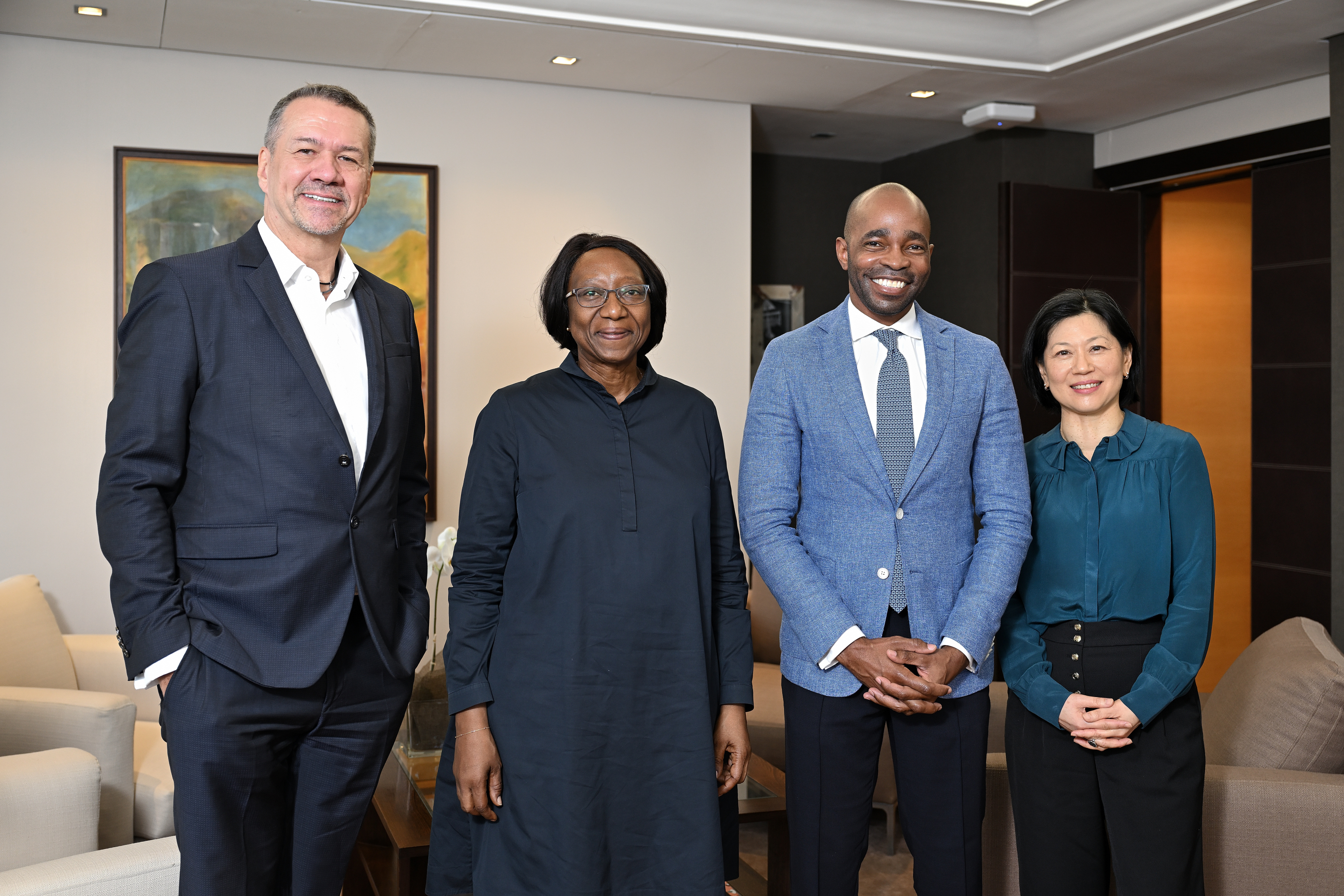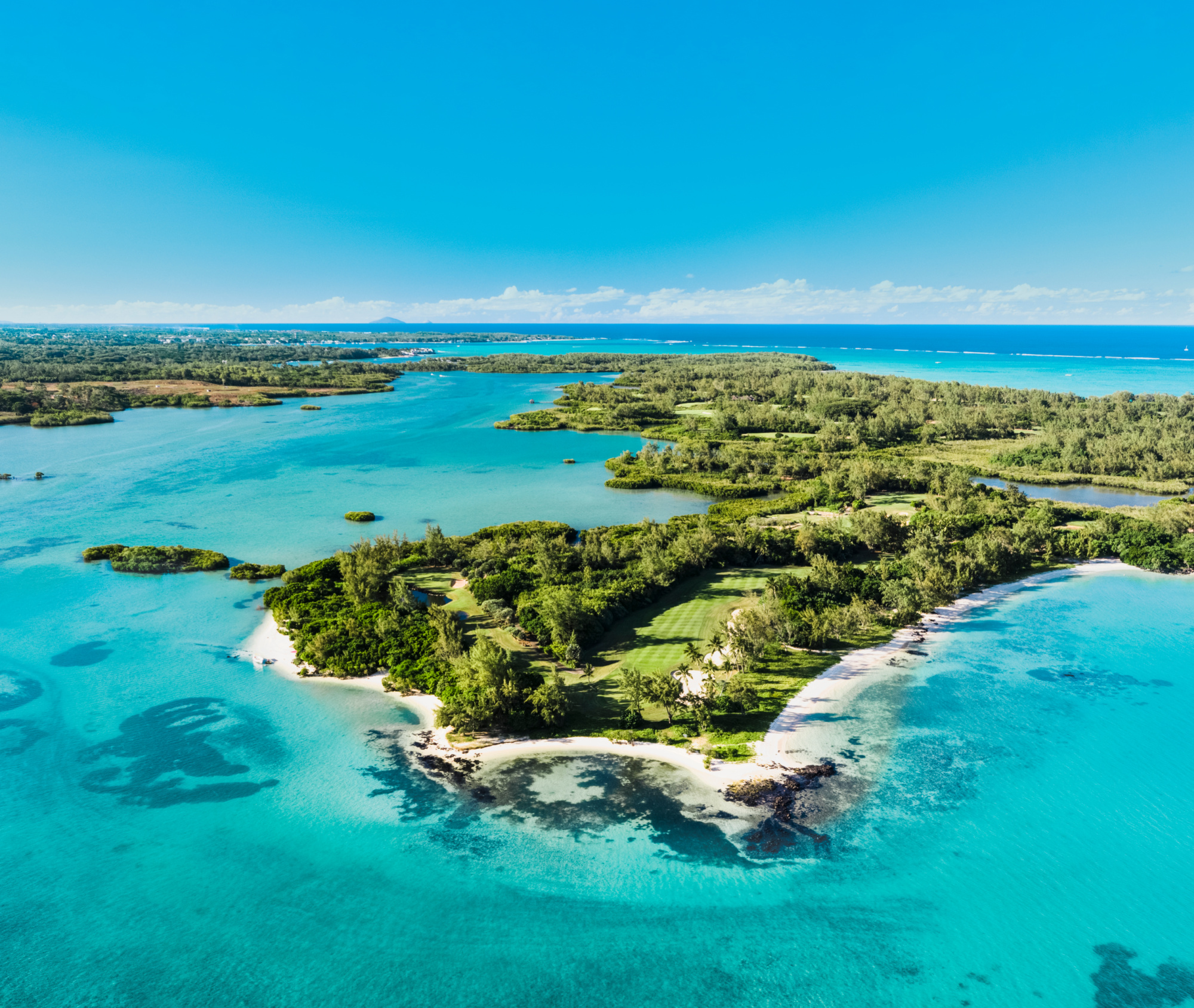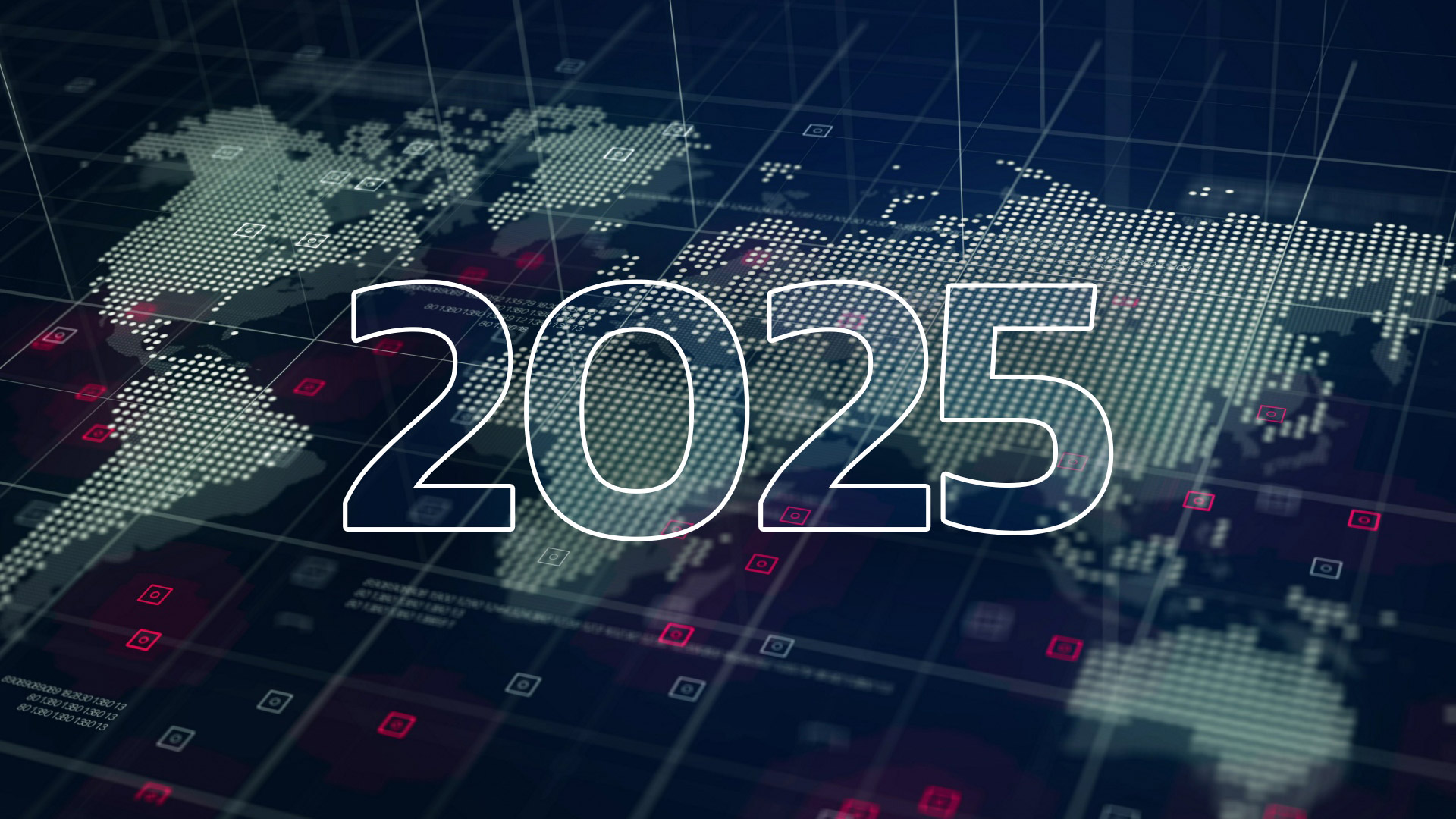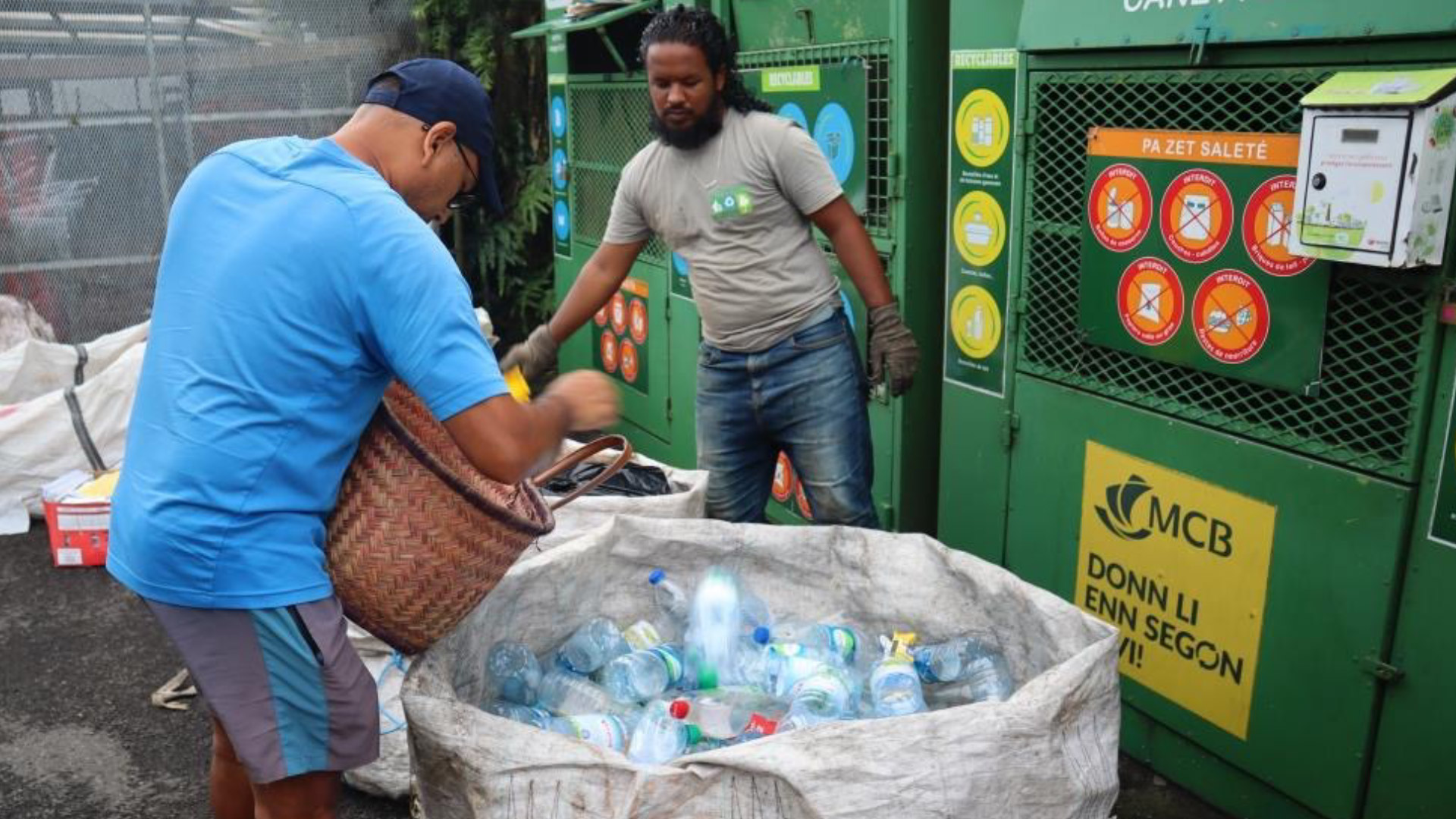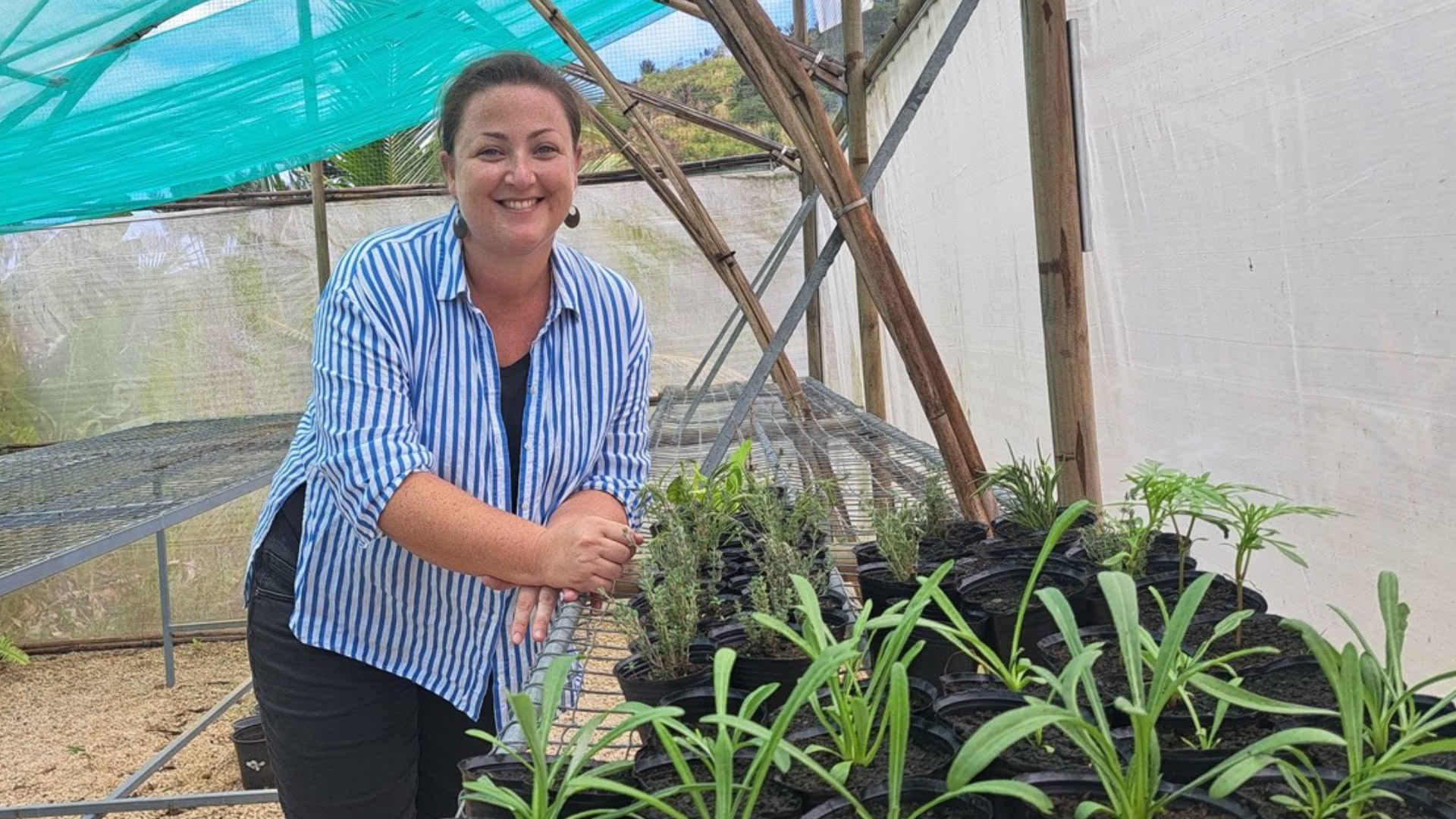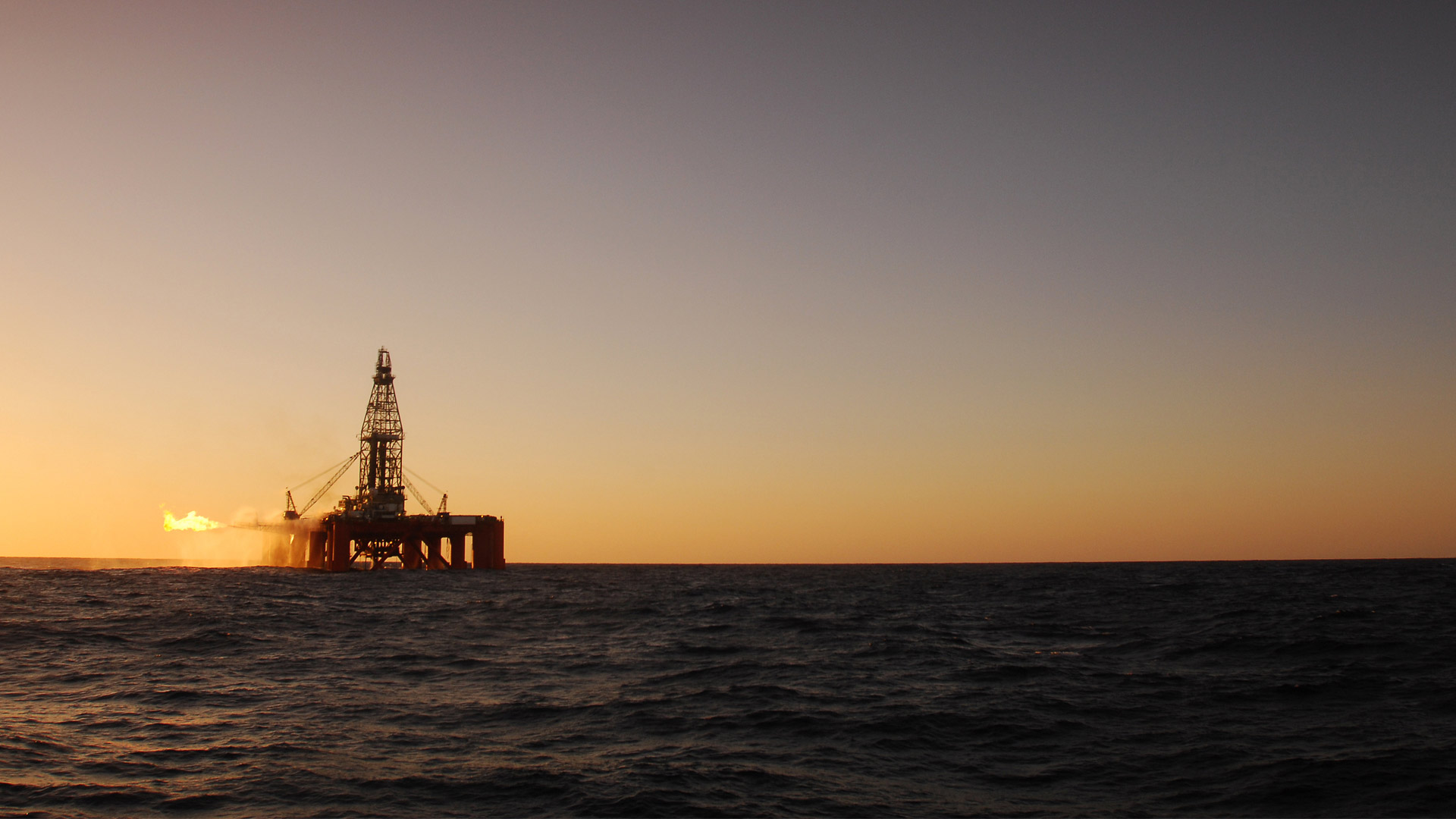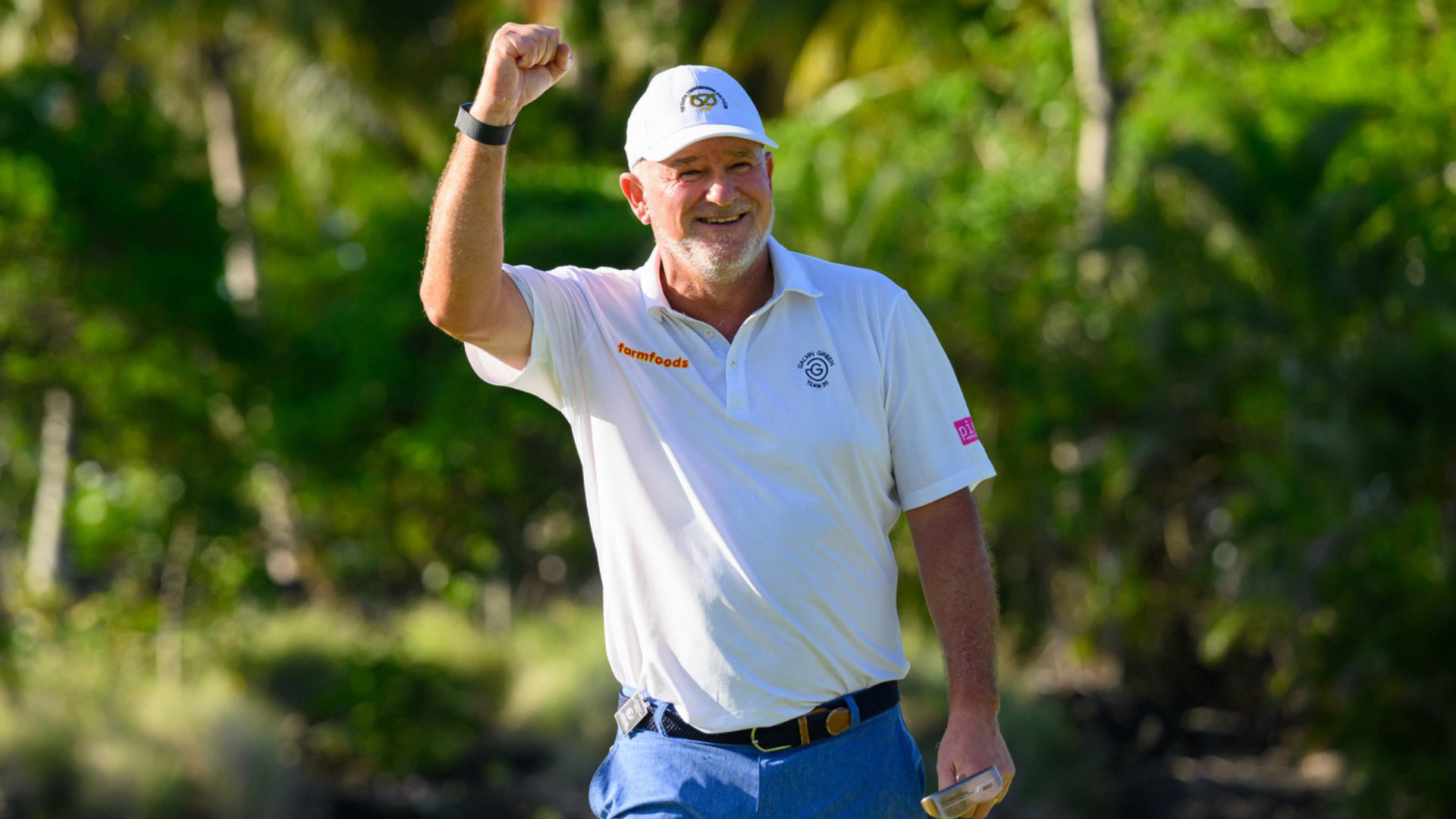- Home
- Investor Centre
- Sustainability
- Talent
- News
- TH!NK
- Corporate Governance
- Company Profile
- Board of Directors
- MCB Offices
Contact Info
Finance and sustainability: Bankers give a glimpse of how their jobs have evolved
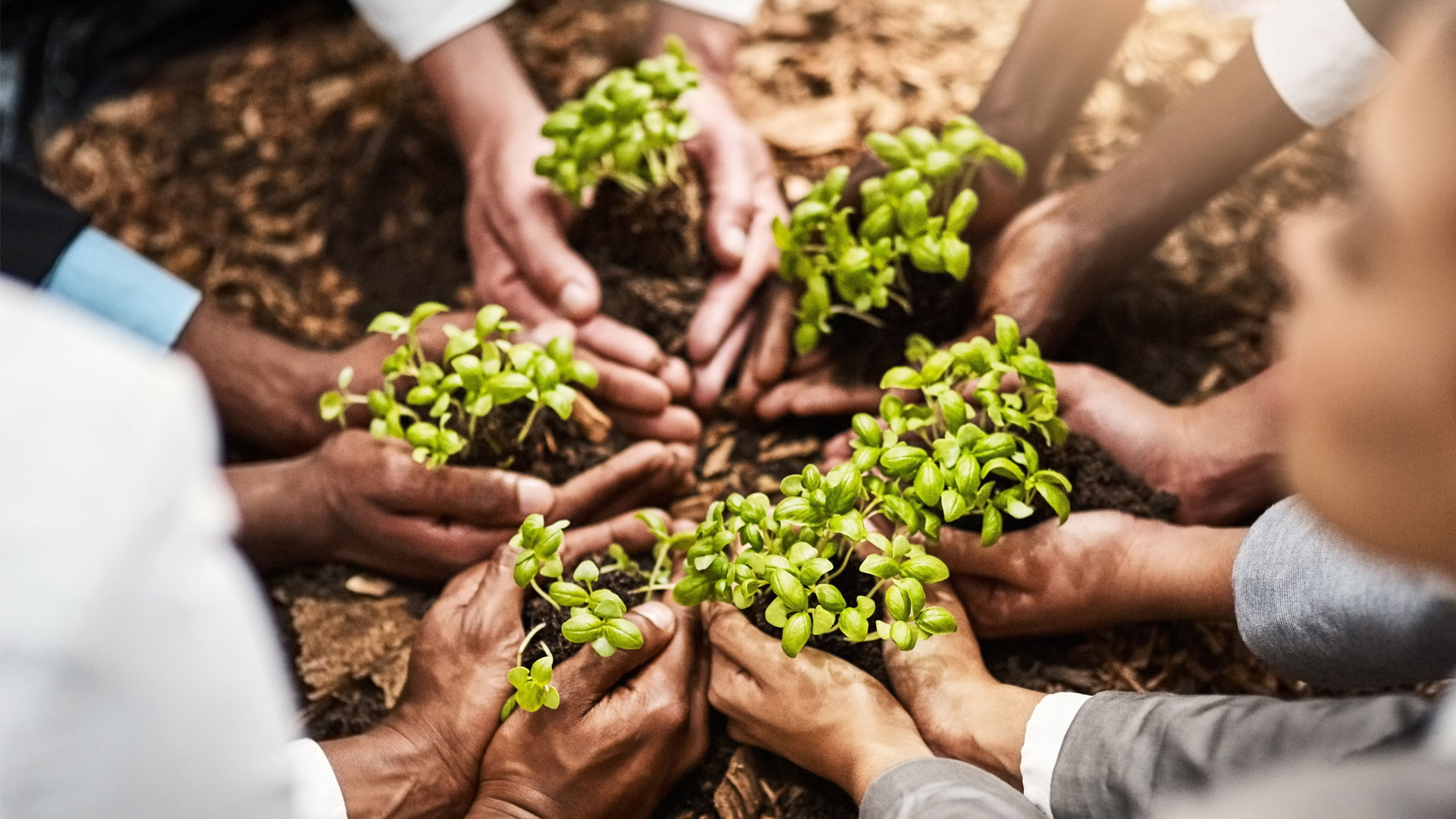
- MUR 10 billion available to Mauritian businesses at a preferential rate to aid their green transition
- MCB’s Relationship Managers ask clients to challenge them to help trigger a co-creation process
- At least two sustainable finance products have been developed in collaboration with clients
The latest episode of the podcast MCB Talk discusses how the current climate is pushing for more collaboration between bankers and their clients as they start co-creating to find innovative solutions aimed at supporting the country’s ecological transition.
In the past couple of years, at least two sustainable finance products have been developed as a result of sustained conversations between Relationship Managers (RM) and their clients, said Aldo Sydonie, MCB’s head of Mauritian and Regional Corporates, in the latest episode of the podcast MCB Talk.
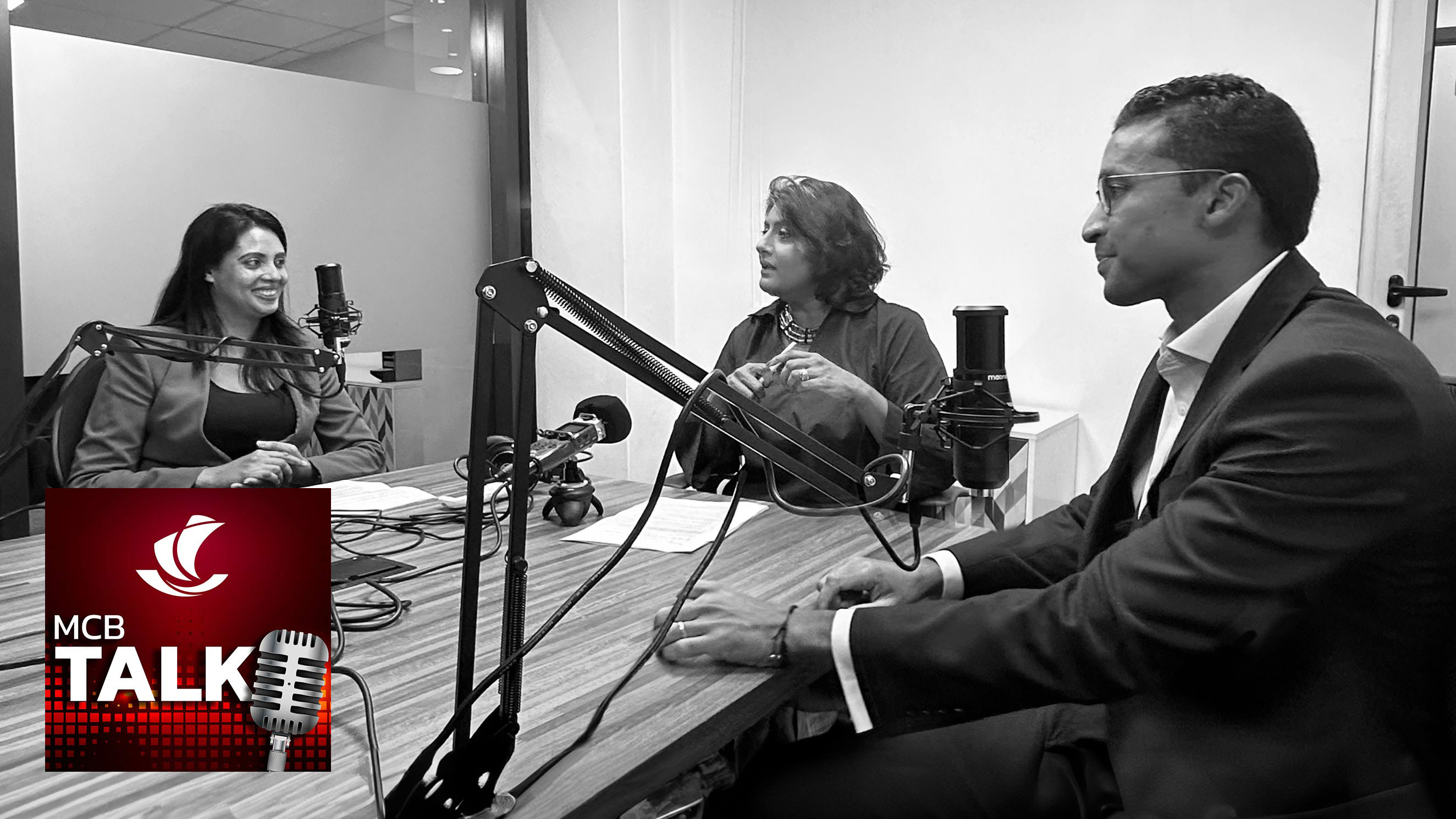
Narvika Seetahul, Senior Relationship Manager - MCB, Deepa Bhookhun Rainer, Editorial Content Creator - MCB and Aldo Sydonie, Head of Mauritian and Regional Corporates - MCB, during the recording of MCB Talk's podcast
Aldo Sydonie and Senior Relationship Manager Narvika Seetahul discussed the progress of MCB’s first in-house Sustainable Loan, which was launched a couple of years ago. Following its popularity, the preferential credit line was doubled to MUR 10 billion and is currently available to Mauritian businesses.
Narvika said that as the country’s first bank, MCB has a duty to help finance Mauritius’ commitments under the Paris Agreement, known as the Nationally Determined Contributions (NDC). This plan will cost the country USD 6.5 billion. While 65% of it, representing about USD 4.2 billion, will be financed by international agencies, the rest, some USD 2.3 billion, will have to be funded by the Mauritian government and its private sector.
This backdrop, added to MCB’s purpose, Success Beyond Numbers, launched in 2018, has progressively impacted bankers' jobs as climate risks become financial risks and the country’s economy increasingly faces the devastating impacts of Climate Change.
This has forced actors in the tourism industry, for instance, to invest in adaptation measures such as beach rehabilitation and coastal protection, says Narvika. She adds that these “will become one of the main action points that need to be jointly tackled by government and the private sector to find solutions adapted to the current business models”.
But because the conversation is relatively new, solutions are still being developed, Aldo and Narvika explained. “We are not just bankers; we are bankers with a team of professionals that can speak the same language as our clients and, in so doing, advise clients on the best financing option”, Aldo said.
He reveals that MCB’s Sustainable Supply Chain Finance (which won an award recently) was developed “together with the client”. This happened following an initial visit by the RM to the client where “we got to understand our client’s whole supply chain – from the sourcing of material to the sale. We understood that the client’s objective was to become a sustainable supplier”, he recounted. This led to a conversation about the client’s needs, which led to more conversations that culminated in a specialised loan at a preferential rate explicitly designed to help the client achieve their goals, in this instance, supporting them in greening their supply chain.
Narvika Seetahul recounted a similar experience of “co-creation”, which led her team to discuss with their colleagues from MCB Private Banking for the elaboration of a Green Mortgage. “Our client’s thinking was while it was great that they can benefit from a preferential rate to build a Green Building, it would be good if those benefits could be passed on to clients who choose to invest in a Green Building”, she recounted.
Aldo insists that there’s more to where that came from as he asks clients “not to hesitate to challenge us, ask us any questions even if you think your project may not fall under the sustainable category.” He explains that his team of RMs is now well-trained in probing and asking the right questions to advise clients accordingly and incentivize them to adopt greener solutions.
“If a client has a need, they should come to us and together, we’ll try and adapt what we have or find a new product to help them in their transition”, Narvika adds, saying that lately, it’s been a regular occurrence where clients have “pushed us and triggered us to find new solutions”.
The ecological transition needs adapted financial solutions and cannot be financed traditionally because green technologies require a higher investment initially. The MCB Sustainable loan is also available to SMEs and other businesses that want to invest in a range of categories such as waste reduction, smart agriculture, import substitution, aquaculture, clean transport, waste management, etc. The taxonomy is currently being reviewed to include an even broader range of categories.
Mitigation actions or the reduction of CO2 emissions also fall under the Sustainable Loan taxonomy. In its NDC, Mauritius commits to increasing the part of renewable energy in the country’s energy mix to 60% by 2030 – just six years away.
MCB Talk is MCB’s first podcast, launched in January 2024. It can be found on Spotify on the MCB Think channel. It seeks to give voice to the array of expertise within the bank to help make sense of the national and regional economies and bring about the right kind of debate on financial issues, trends, and sustainability in Mauritius and the African continent.
Subscribe to our Email Alerts
Stay up-to-date with our latest releases delivered straight to your inbox.
Contact
Don't hesitate to contact us for additional info
Email alerts
Keep abreast of our financial updates.





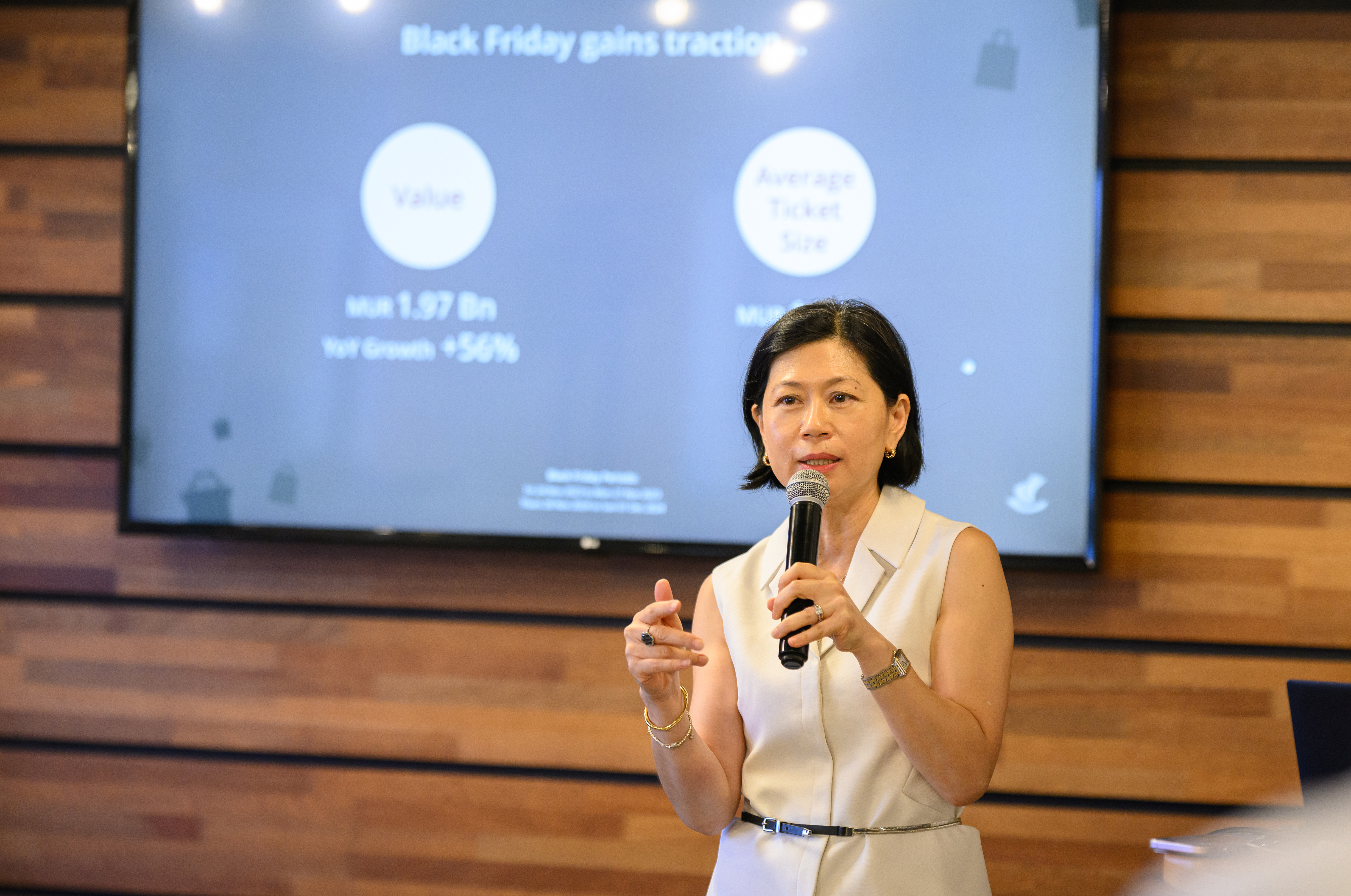
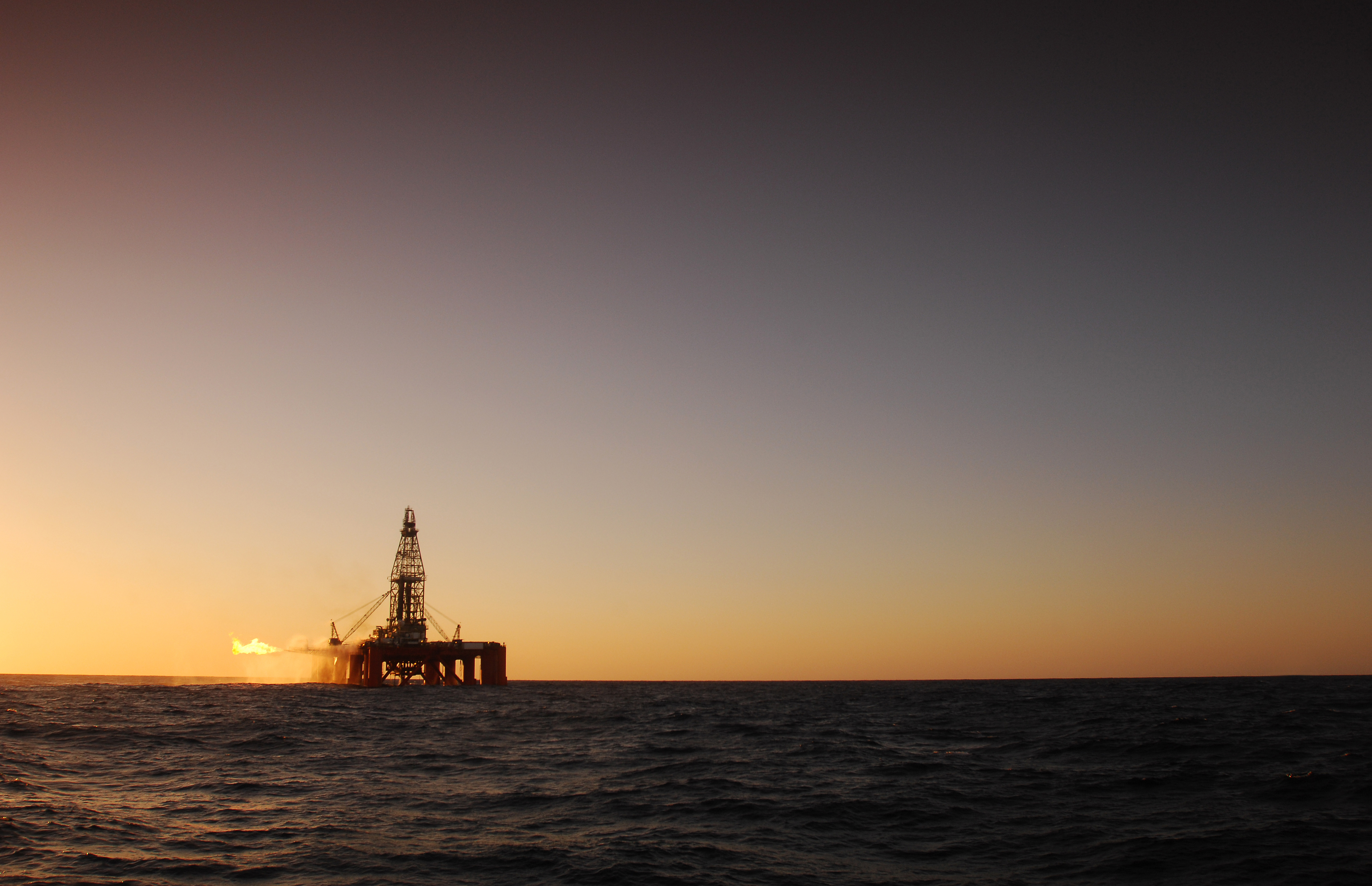
.jpg?sfvrsn=467195a0_1)
